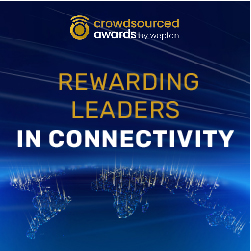An estimated 5.5 billion people are online in 2024, marking an increase of 227 million individuals based on revised estimates for 2023, according to new figures from the International Telecommunication Union (ITU).
The estimates featured in ITU's Facts and Figures 2024 show that connectivity continues to increase worldwide but reveal the complexities of reaching communities in low-income countries.
While an estimated 68% of the global population is now online and all indicators tracked in the report show improvement, stubborn digital divides persist and about one-third of the world's population remains offline.
“Facts and Figures 2024 is a tale of two digital realities between high-income and low-income countries," said ITU Secretary-General Doreen Bogdan-Martin. “Stark gaps in critical connectivity indicators are cutting off the most vulnerable people from online access to information, education and employment opportunities. This report is a reminder that true progress in our interconnected world isn't just about how fast we move forward, but about making sure everyone moves forward together."
Level of Development and Connectivity Closely Linked
Facts and Figures 2024 shows that internet use remains tightly linked to the level of development.
In high-income countries, 93% of the population is estimated to be using the internet in 2024. This contrasts with low-income countries where only 27% of the population is estimated to be online.
Connectivity challenges also remain in the least developed countries (LDCs) where only 35% of the population is estimated online and landlocked developing countries (LLDCs) with only 39% online.
In total, an estimated 2.6 billion people are offline in 2024, accounting for 32% of the world's population. This is down from the newly revised estimate of 2.8 billion for 2023, which represents 35% of the population.
“The world is inching towards universal access when it should be sprinting,” said Cosmas Luckyson Zavazava, Director of ITU’s Telecommunication Development Bureau. “While we continue to make progress on connectivity, our advances mask significant gaps in the world's most vulnerable communities, where digital exclusion makes life even more challenging. We must intensify our efforts to remove the barriers that keep people offline, close the usage gap, and renew our commitment to achieving universal and meaningful connectivity, so that everyone can access the internet.”








